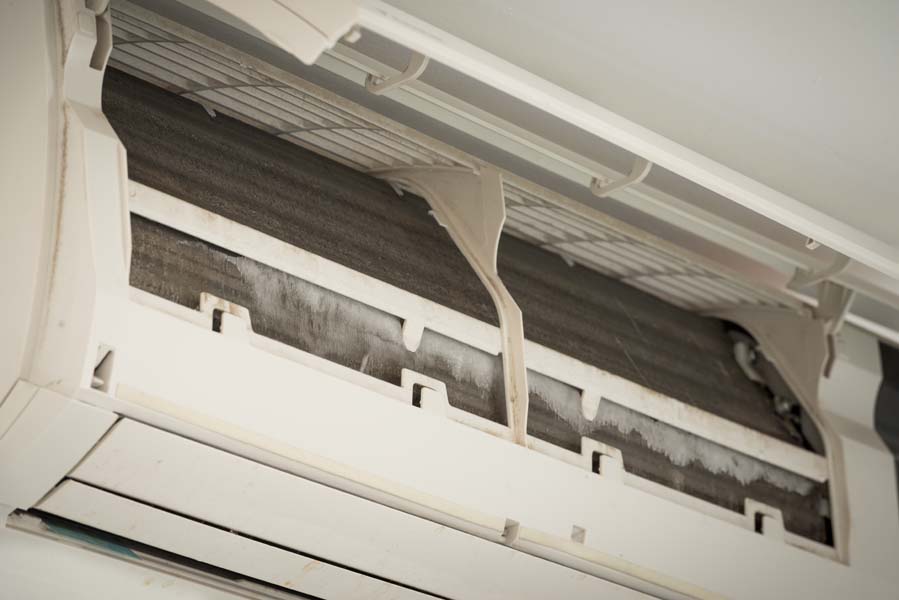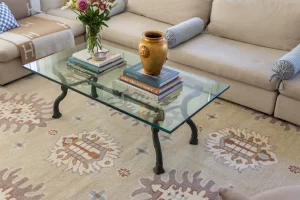Why is my air conditioning system freezing up?

Nearly all AC unit freeze-ups are caused by either a need for refrigerant or an absence of air circulation to the evaporation coils. If the air conditioning system is cold up, the first point you need to do is transform it off. If you continue to run it, the compressor can be harmed.
Troubleshoot by examining the following items:
- Thermostat temperature level setup. If your thermostat is set below 70 levels maybe creating your air conditioner to panic, as well as it’s really not cooling your home any faster.
- Refrigerant level. If your cooling agent level is reduced, this can signal a bigger problem and we’d advise calling an expert to tune-ups your unit.
- Air filter. A clogged-up, dirty air filter can be triggering the issue. Change the filter if it’s been greater than a month from the last change.
- Vents. See to it that every vent is open to guarantee airflow to the coil of the evaporator.
- Evaporator coils. When the coils get obstructed by dust and debris, this can be the reason for the trouble.
- Fan. The fan is what impacts cool air with the ductwork in your home, as well as additionally aids to flow air back to your evaporator coil.
Why is my AC unit leaking condensation? Should I be fretted?
One function of AC systems is to draw out moisture from the air, so a little bit of condensation is natural. However, leakages usually show that there’s an issue with the means the condensate is draining pipes.
The following things might be causing this issue or call a repair service:
- Blocked condensate lines
- Dirty or icy evaporator coils
- Rusty condensate pans
- Low cooling agent levels
- Installation problems
- Dirty air filters
How do I alter my air filter?
As stated above, you must always transform your air filter to guarantee the AC unit is running effectively, as well as not contributing to various other maintenance issues.
To transform your filter, adhere to these actions:
- Pick the appropriate size. Remove your old filter and gauge it, or read your user’s handbook.
- Select a MERV. MERV varies from 1 to 20. The higher the MERV, the more effective the air filter.
- Select the kind of filter. You can select from fiberglass, begged, cleanable, or digital.
- Install it. The majority of air filters are exceptionally simple to install. Follow the supplier’s guidelines.









